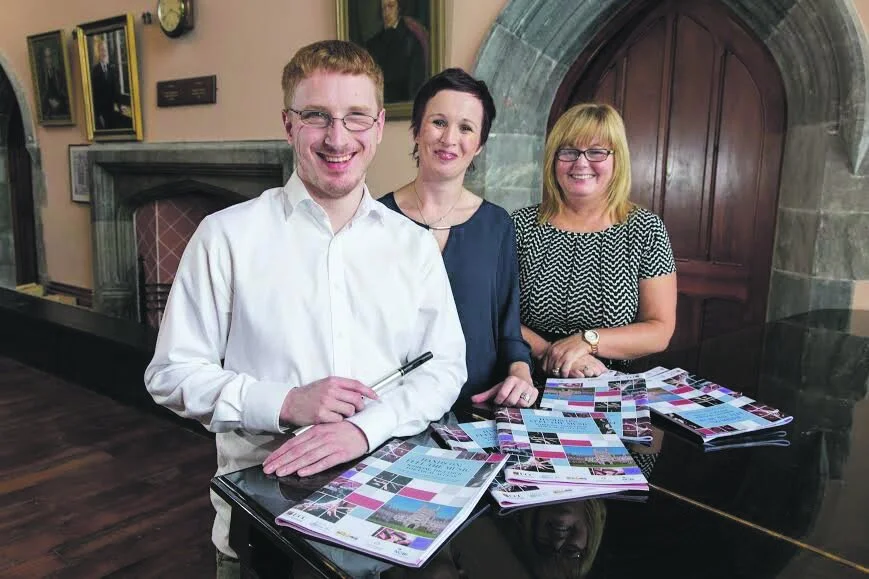Blind Musicians Get Helping Hand
Being blind or visually impaired has never been an impediment for the musically gifted. The great Irish harpist, Turlough O’ Carolan certainly never let it hold him back. The beautiful music of blind harper O’ Carolan might have been lost forever had it not been for Edward Bunting, who transcribed the music at the Belfast harp festival in 1792. The music is still being enjoyed thanks to Buntings endeavours which shows us the importance of having a written tradition as well as an aural tradition.A new handbook ‘Hands On: Feel the music’ devised by UCC music lecturer Dr Eva McMullan- Glossop sets out to help this generation of blind musicians read Braille music so that they can further their music education at second and third level. O’ Carolan and other 18th century harpers came from an aural tradition but music notation is a critical element of music education today. ‘Hands On’ is an exciting and welcome project for UCC which has one of the most progressive Disability support services in the country and also has the largest number of visually impaired students registered at third level in Europe. The handbook explores new methodologies that will provide the music teacher with relevant information to make minor adjustments to the existing framework and improve music education for both the student and the teacher. McMullan highlights the importance of forethought, preparation and planning on the part of both the school and the student before course work begins. She believes that Braille is the way forward for blind students. “A Braille music system will allow blind musicians to read and write music more quickly and easily than other systems”. This project strives to create an environment which is accessible to both visually impaired and sighted students.Robert Creed, one of Dr. McMullan’s former students, who is also a traditional musician taught her a lot. Namely, the difficulty for visually impaired students studying musical notation. Creed recently received a first class music degree and not only has he achieved this but he has also written a poem about the experience of being a blind musician. Inspired by the commemoration for the George Boole bicentenary, he also composed a piece in his honour and performed it accompanied by UCC PhD student and harpist Fiachra O Corragáin. As well as articles and resources, Dr McMullans handbook contains a number of interviews one of which is with Robert. He tells her the positive impact music has had on his life. He would suggest that “music should always be accessible to blind and visually impaired students and particularly at all levels of the education system.” Both the aural and the visual elements are important. The more that visually impaired students develop their aural skills, the more they can integrate into a social setting, which can have a huge impact on their musical development as well as their social integration and confidence. In the interview Robert pinpointed a poignant message, which captures the message ‘Hands On’ upholds: ‘visual impairment can be transcended by music.’


